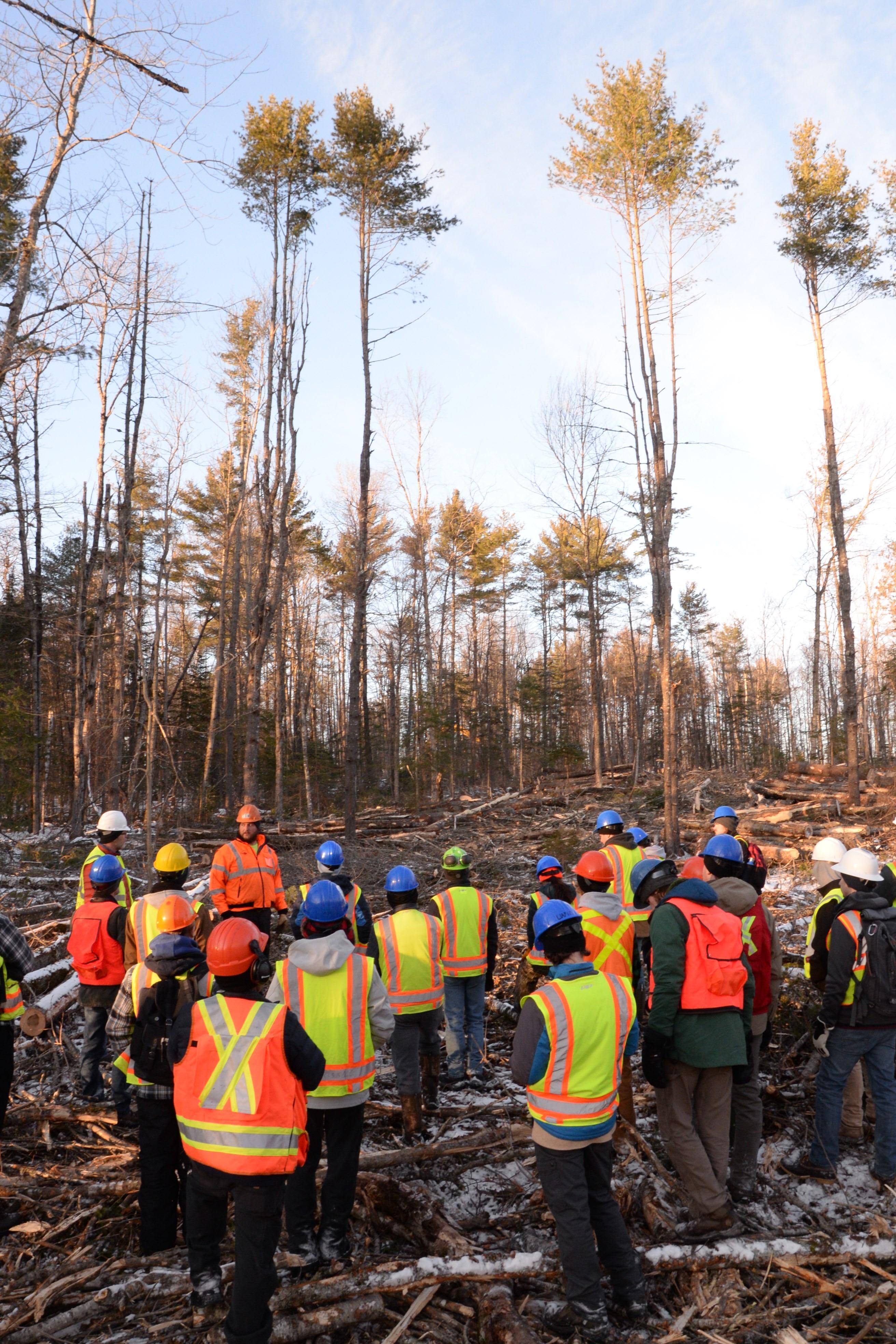
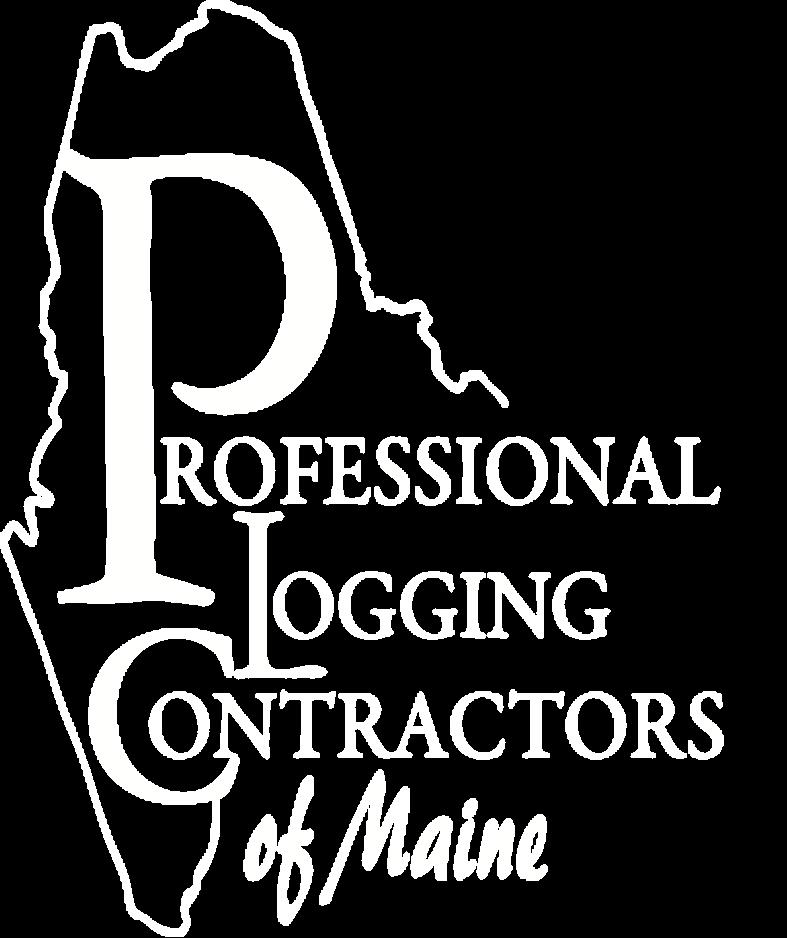







































Volume 17 Issue 2 | Spring 2023 A Quarterly Publication of the Professional Logging Contractors of Maine A Quarterly Publication of the Professional Logging Contractors of Maine President s Report 6 New Members 7 Director s Report 8 Annual Meeting 13 Also in this issue...
Logging
16
Thomas
and Forestry Page
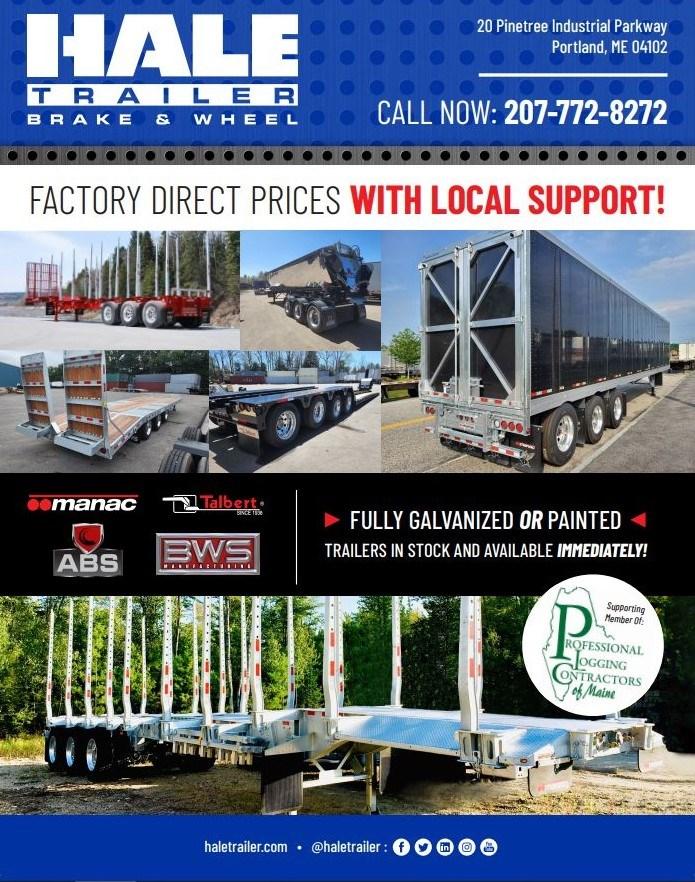



PLC Staff Executive Director Dana Doran ▪ executivedirector@maineloggers.com Membership Services Manager Jessica Clark ▪ jessica@maineloggers.com Safety and Training Coordinator Donald Burr ▪ safety@maineloggers.com Office Coordinator Vanessa Tillson ▪ office@maineloggers.com The Logger’s Voice Editor and Designer Jon Humphrey Communications and Photography ▪ jehumphreycommunications@gmail.com Advertising Jessica Clark ▪ jessica@maineloggers.com © 2023 Professional Logging Contractors of Maine All material (“content”) is protected by copyright under U.S. Copyright laws and is the property of the Professional Logging Contractors of Maine (PLC) or the party credited as the provider of the content. For more information call (207) - 688 - 8195 Thomas Logging and Forestry 16 Supporting Member Spotlight SJ Rollins 20 Also Inside 4 Calendar 5 Events 6 President’s Report 7 New Members 8 Executive Director’s report 13 Annual Meeting 22 Economic Impact Report 28 Trucking 30 Safety 38 PLC Legislative Breakfast 39 Mechanized Logging Operations and Forest Trucking Program 40 Maine Forest Service 43 Master Logger 44 ALC updates 48 Congressional updates Board of Directors Will Cole, President Chuck Ames, 1st Vice President Duane Jordan, 2nd Vice President Kurt Babineau, Secretary Andy Irish, Treasurer Tony Madden, Past President Aaron Adams Brent Day Marc Greaney Steve Hanington Robert Linkletter Jim Nicols Randy Kimball Ron Ridley Wayne Tripp Gary Voisine Aquarterly publication of: The Professional Logging Contractors of Maine 108 Sewall St., P.O. Box 1036 Augusta, ME 04332 Phone: 207.688.8195 www.maineloggers.com
Cover: Thomas Douglass of Thomas Logging and Forestry speaks to forestry students from UMaine at an active timber harvest in January. Story page 16.












Event Calendar 4 Professional Logging Contractors of Maine LoggersServingLoggersSince1995








5 The Logger’s Voice ▪ Spring 2023 Do you have news to share? The PLC is always seeking news from our Members that showcases our industry’s professionalism, generosity, and ingenuity. Send ideas to communications@maineloggers.com Updates
From the President
By Will Cole
Hello everyone.
I teach a Sunday school class and recently we began studying the book of Job. Job's life is described as going well but then tragedy happens. At first he loses all his wealth. Next he loses his children and finally his health. Then three friends come to comfort him.

I asked my class two questions: What is a friend? As the saying goes you can't choose your relatives but you can choose your friends. In my opinion friends are chosen family. People you associate with because you choose to. The second question was how do you identify a true friend. Four answers surfaced.
A true friend is empathetic. Empathy simply put is one's ability to understand what is going on, recognize how they are feeling, and to interact and respond accordingly. ''They take the time" in order to respond properly. They must be a good listener. They need all the facts presented to them, not just preconceived ideas.
A true friend is honest. Someone who tells you the truth no matter what the consequences. Their word is their bond. If they say it, you can trust it.
A true friend is reliable. Consistent in their honesty. Anyone can say something honest when it's convenient to do so, but a true friend never wavers whether it's advantageous or not.
A true friend is loyal. They remain firm in their support. They stick by you in good times and bad. The contrast to this is what I would call a circumstantial friend who is only a friend when it works to their advantage.
When I worked a woodlot years ago, the landowner had a very large and spooky dog who couldn't be trusted. Anytime he was around when my back was turned he would come at me. But I discovered one thing that helped me work around him. He liked to play fetch. So anytime he would start growling at me I would simply throw a stick and he would forget about harming me. As long as I had something advantageous for him, he'd leave me alone. But when my back was turned he would attack me. A circumstantial friend only uses you for what he can get. A loyal friend has your back.

Our industry would be well served if we started identifying our true friends from our circumstantial ones. It was truly disappointing as of late to learn of a substantial price cut in softwood pulp just weeks before mud season after at least in our world a very challenging winter.

All we have heard about is the logger shortages and the mills difficulty in procuring enough fiber. After some positive price increases and fuel bonuses trying to stabilize the situation, we're now told the market price is falling and prices must go down. This begs the question, at least for me, are they circumstantial friends or true friends?
Empathy: Do they really understand the magnitude of this decision? Are they listening to our issues?
Honest/reliable: Are they consistent in this approach? When the market was good did they share the gain or just the pain?
Loyal: Are they only our friends when it's advantageous for them but when our backs are turned do they look to harm?
I believe it's time for loggers to choose your friends by their actions. If they show consistency and are empathetic to our cause, stand by them in good times and bad. We all win together and we all suffer together based on a trust established.

But if their actions are consistently inconsistent and their word is unreliable reciprocate by only using them when its advantageous. When it is not, do not use them, but never sell your integrity. Let your word be your bond. Only make promises to those who do the same.
See you in the woods,
Will
6 Professional Logging Contractors of Maine LoggersServingLoggersSince1995
Welcome New Members
Contractor Members
Old School Construction and Logging of Cutler joined the PLC as a new Contractor Member in March 2023. The company has a professional staff of 3 full-time and 4 parttime employees. For more information contact Andrew Hall at 207-812-5211 or email oldschooltrucking2@gmail.com
D.L. Logging Inc. of Jackman joined the PLC as a new Affiliated Contractor Member in March 2023. The company has a professional staff of 2. For more information contact David Lessard at 207-349-0629 or email david.lessard@sogetel.net

Austin Trucking Inc. of Norridgewock joined the PLC as a new Forest Contractor Member in March 2023. The company has a professional staff of 3 employees. For more information contact Shawn Austin at austintrucking@reagan.com
Supporting Members
Haix North America, Inc. of Kentucky joined the PLC as a new Preferred Supporting Member in December 2022. The company is one of the world’s leading manufacturers of high-quality, comfortable footwear including boots for the logging and trucking industries. For more information contact Sandy Longarzo at 866-344-4249, email s.longarzo@haix.com or visit www.haix.com.
O’Connor Motor Company of Augusta joined the PLC as a new Preferred Supporting Member in January 2023. The company has been a Maine owned and operated dealership since 1950, today offering new and used GMC, Chevrolet and Buick vehicles as well as parts and service. For more information contact Scott Cyr or Jack Frost at 207-6223191, email scott.cyr@oconnormaine.com or visit www.oconnorautopark.com.
Rinaldi Energy joined the PLC as a new Preferred Supporting Member in March of 2023. Rinaldi Energy is a wholesale, commercial and residential fuel supplier operating out of Saco, ME. Delivering Diesel, Gasoline, Heating Oil and Kerosene throughout the state, with extensive knowledge and experience in the fuel industry –
the Team at Rinaldi Energy recognizes what businesses need from their fuel supplier. Whatever the situation calls for, Rinaldi Energy has the tools, the strategies, and the capacity to make sure their customers are supplied for success. Visit www.rinaldienergy.com or contact Dimitri Skinsacos at (207) 756-4104 to learn more.
Treeline Service Center of Lincoln joined the PLC as a new Enhanced Supporting Member in January 2023. Treeline’s Service Center is a parts and supply store for pickups, trucks, and heavy equipment. Its maintenance and repair department includes three shops that service forest and construction equipment, heavy trucks and trailers, service vehicles, and pickup trucks. For more information contact Kent Oliver at 207-794-2044, email kento@treelineinc.biz or whitney.souers@treelineinc.biz or visit www.treelineinc.biz.
Maine Plywood USA of Bingham joined the PLC as a new Supporting Member in February 2023. The company is a proud producer of Multiply Plywood Underlayment. For more information contact Charlie Martin at 207-620-6180, email charlie@maineplywood.com or visit www.maineplywood.com
NorState Federal Credit Union of Madawaska joined the PLC as a new Supporting Member in December 2022. Norstate is a not-for-profit member-owned cooperative with six branch locations across northern Maine. For more information contact Danielle Hebert at 800-804-7555, email dhebert@norstatefcu.org or visit www.norstatefcu.org
David Delaite of Lincoln joined the PLC as a new Individual Supporting Member in December 2022. For more information call 207-356-0633 or email lisadelaite@gmail.com or delaitetruckinginc@gmail.com
John Scales of Greenville Junction joined the PLC as a new Individual Supporting Member in December 2022. For more information call 603-443-7313 or email jscales@andersonequip.com
Wayne Buck of Rumford joined the PLC as a new Individual Supporting Member in December 2022. For more information call 207-364-4956 or email Buckcoinc@hotmail.com.
7 The Logger’s Voice ▪ Spring 2023
Not a member but interested in joining the PLC? Contact Jessica at (207) 688-8195 or email jessica@maineloggers.com
From the Executive Director
Generosity vs. Greed
By Dana Doran
On May 4th and 5th, the PLC will celebrate its 28th year representing Maine’s timber harvesters and haulers at its Annual Meeting in Bar Harbor. The membership had such a good time there last year that we are planning on a repeat performance. I hope that all of you can join us this year to learn, celebrate and thank the people in your life, have a little fun and raise money for the kids.



Our Annual Meeting theme in 2023 is to recognize and say thanks to the family members that support your businesses day in and day out. You all have the good fortune to do such honest work that provides for so many people across the state. However, it would be impossible to accomplish any of it without the support and guidance
of your family members. Let’s say thanks to all of those family members that do so many little things, but don’t get the credit they truly deserve.
Also this year, we are expanding our Annual Meeting from one day to two because of the generosity of one company and one family who knows no other way than to help those who need it the most.
Duane Jordan, President, Elliott Jordan and Sons, PLC Board member and 2nd Vice President, has provided an opportunity on May 4th for his family to give back in a very special way.
As most all of you know, the Hanington Family (Hanington Bros., Inc.) brought the Log A Load for Kids
8 Professional Logging Contractors of Maine LoggersServingLoggersSince1995
program to Maine in 1993 to help kids with serious health issues. In the first year, they donated the value of a load of logs ($750) to the children’s hospital in Bangor. The PLC took the reins from the Haningtons in 1995 and the rest you could say is history, but not without the unwavering support from the membership.

Today, the PLC is supporting two children’s hospitals through our various activities: Annual Meeting, two golf tournaments, Heritage Days in Greenville, sales of Christmas Ornaments and incredible donations from the membership each and every year. In 2022, with the help of our amazing members and partners, the PLC raised more than $244,000 for Barbara Bush Children’s Hospital
(Portland) and Northern Light Eastern Maine Healthcare (Bangor).
The PLC’s Annual Meeting has taken on a life of its own with the silent and live auction. In 2022, we raised a staggering $144,000 in one night, which was $50,000 more than the year before.
Scott Madden, President, Madden Timberlands and former PLC Board Member, who has been known to rattle a few cages to get people like Senator King and Congressman Golden to spend more money at the auction than they intended to, reminds me every year, “Can we can keep this up?” I shake my head and say, “I have no idea, but somehow I know that it will get done.”
The Logger’s Voice ▪ Spring 2023 9 Doran Continued Page 10
UMaine forestry students visit a PLC Member Thomas Logging and Forestry job in January.
People come to the Annual Meeting knowing that they aren’t going to get a deal and they feel empowered to make sure the record gets beat once again. $2,500 for a whoopie pie, $1,000 for a rock, or $12,000 for a one-of-akind rifle is not about wanting and getting a material possession, it’s about doing what’s right for others. Being generous so that others can live a little longer, giving the shirt off your back if you could and knowing that someone in your life had or will have a child in need at some point is what it’s all about.
If you haven’t been to the Annual Meeting before, put it on your calendar and join the effort to make miracles happen for others.
On May 4th this year, Elliott Jordan and Sons of Downeast Maine, in the small little hamlet of Waltham, is upping the ante to dig a little deeper and do what’s right for the kids. The PLC’s fundraising efforts for Log A Load will likely surpass $2 million raised in 2023 and I think Duane and his family would like to do their part to nudge it over the edge.
Duane and his family are blessed to live in one of the most beautiful parts of Maine. Over the last thirty years, they have committed their lives to logging, but have also invested in their community in so many other ways. Elliot Jordan and Sons has made a commitment to their family and to the families that are supported by them, doing whatever it takes to keep their employees working and moving forward.
Today, they’re not just loggers, but earthwork contractors, blueberry farmers and renewable energy generators. If logging could be their only craft, it undoubtedly would be, but unfortunately, it hasn’t worked out that way. Like so many of you, they had to diversify to make a living.
On May 4th, Duane has invited everyone to spend the day with his family, learning about their business, learning about their investments and giving back for Log A Load for Kids.
At 9 am in Bar Harbor or 10 am in Waltham, we will board coach buses and start our journey. Duane has planned a special day to see his operations in the forest, on the farm, in the wind and the sun. Along the way, folks can network, socialize and reflect.
At the end of the day, we will meet at Duane’s house for a full Downeast Lobster Bake with all the fixings. We will also be blessed to hear from our friends at the children’s hospitals and learn how everyone’s generosity over the years is making such a difference.
This entire day will be donated by Elliot Jordan
and Sons. From the transportation to the beverages, to the lobster and everything else that is provided for the day. 100% of the proceeds will be added to our total which is donated to the hospitals.
This is an incredible act of generosity on behalf of Duane and his family, but it is also emblematic of the generosity of loggers and what they do every day. Our only hope is that others feel the same way and give back however they can for the kids. If only those you work for could have the same mentality when it comes to doing the right thing for those in need, whether its kids or logging families.
In early March, at our Legislative Breakfast, we released the results of our tri-annual Economic Impact Study that we produced with the help of the University of Maine. This is the third release of the study since 2016 and the results are quite staggering. As of 2021, logging and trucking contractors in Maine employed over 3,000 people directly and were indirectly responsible for the creation of an additional 2,500 jobs. This employment and the investments that contractors make contributed $582 million to the state’s economy.
However, in the last four years (2017-21) as a result of mill closures, curtailments and inflation created by the response to COVID 19, the data is quite clear that Maine has lost 30% of its harvesting capacity. In just four years, the industry has shrunk from an annual economic impact of $620 million to $582 million and total jobs have been reduced from 9,000 to 5,500.
As I ponder the results, I often think about the response to all of the negative conditions by those you work for. In 2021 and early 2022, it was essentially a head in the sand approach. Yes, there were a few mills and a few land management companies that went above and beyond to do the right thing, increase rates and make sure that wealth was distributed more equally. However, a majority used the lack of market competition to gouge many of you with the business-as-usual mentality, which has been been based upon greed from years of similar activity.
That mentality is what drove 30% of the capacity to the sideline. Contractors had enough and decided it was time to park equipment, sell equipment or move in another direction. The, “you made your bed and now you have to sleep in it,” phrase became very common in the summer of 2022 as the blame could be laid directly at the feet of those who went too far for too long.
In late summer and early fall of 2022, it became apparent that capacity was a major issue and drastic action
10 Professional Logging Contractors of Maine LoggersServingLoggersSince1995
Doran Continued from Page 96
Maine loggers are not just stewards of the land, but stewards of their employees, their families and their communities. Will our mill partners prove that they can be just as generous as loggers?
was required across the board. From discussions with members, it appears that there was quite a shift in attitude by pulp mills, sawmills, land management companies and landowners at that point in time. Rates for wood delivered and for service contracts went up across the board.
Many of you were thankful for this type of investment because it looked like real recognition of the issue and a response that was not just necessary but justified. However, very few were willing to reinvest in new equipment, in bringing back parked equipment or hiring new employees until these increases were sustained for a long period of time. The general sentiment was to wait and see if rate increases were long term and something that they could count on.

The majority of those who increased rates have been true to their word and this bodes well for a more balanced future. However, as you well know, it only takes one rotten apple to spoil the bushel and it appears there is
more than one rotten apple.
In November 2022, a ship landed in Searsport with 30,000 tons of hardwood chips. Those chips came from Canada and were destined for a Maine pulp mill. Wood chips have never been imported by ship in the history of paper making so this was quite a surprising move. The justification we heard for this was that the logging capacity isn’t available and desperate times require desperate measures.
This act of desperation seemed odd since this was a singular event, would become the only shipload of chips delivered to this mill and it only satisfied about 6-7 days of wood consumption.
Equally as odd was the fact that we heard that the cost of these chips per ton was upwards of four to five times as much as they paid locally for roundwood. If wood was in such high demand by this paper mill, wouldn’t they try to incentivize local deliveries by increasing prices for an
11 The Logger’s Voice ▪ Spring 2023
Doran Continued on Page 126
Doran Continued from Page 11 16
extended period of time or make long term commitments that contractors could count on to reinvest? Wouldn’t this be cheaper in the long run than paying four to five times the market rate for fiber?
What was equally disturbing was the fact that this same company lowered the price of purchased roundwood and biomass from local suppliers just two months later. The reason given, there was an oversupply of wood and therefore, they didn’t need as much and needed to lower the price.

This is a head scratcher to me since just two months prior, they were so desperate that they needed to import fiber from a foreign country at an exorbitant cost. Was the process to import really about a shortage of fiber, or was it intended to send a message to Maine contractors that they are expendable and asking for too much money will not be tolerated? I’m not trying to put words in their mouth, but something smells funny.
Secondly, the same company that imported the chips and then dropped the price because of supposed oversupply, is now contemplating company employed logging crews (see image below). Let that sink in for a minute as you digest the other point. You can’t make this stuff up.
And adding insult to injury, because one leader
from Canada, loaded with wood chips, landed in Eastport, ready to off load fiber for another one of those desperate mills. Again, the math and logic doesn’t pass the straight face test if you ask me. If there was actually a commitment to ensure Maine contractors could pay higher wages to employees and reinvest in their equipment, I bet those very same mills that decided they were in such dire straits that they needed to pay four to five times the going rate for six days of wood, could get that supply all day long.
Coming back to where I started, greed and generosity just don’t mix. On the one hand, we have loggers that are willing to do anything for their communities, the families they support and children in need. On the other hand, we have mills that can’t or won’t be generous to the folks they need more than anyone.
As we move toward mud season and look forward to celebrating 28 years as an organization in Bar Harbor, give this some thought. Maine loggers are not just stewards of the land, but stewards of their employees, their families and their communities. Will our mill partners prove that they can be just as generous as loggers?
Enjoy a breather over the next few weeks and I look forward to seeing you in Bar Harbor on May 4-5 to be generous and recognize all those folks who helped you get this far.

13


14

15
GUILFORD – Late this winter, Thomas Douglass brought his oldest son, Trafton, with him to a harvest site for a couple of hours one Saturday afternoon where his logging company, Thomas Logging and Forestry, was operating.


Thomas will tell you he has very good processor operators, much better than he is, but sometimes he’ll run a machine himself to fill in where needed, and this was one of those days.
His son sat in the jump seat in the back of the cab of the big Rottne machine, and being four years old he had a lot of questions about which trees were being cut and why. He even found the operator’s manual and spent time paging through it learning about the processor and how to fix it if it broke down. On the final log of the day, Thomas
put him in his lap, fed the log through, and let him press the saw button.
“He hasn’t stopped talking about it since,” Thomas laughed, adding he is looking forward to bringing Trafton to the Loggers’ Expo in Bangor in May. “He’s going to be all over it. He’s going to want to be in every cab of every machine. He asked me again today if he was going to come cut wood with me, I said no, you have to go to daycare, and he said, but I want to cut wood.”
Many loggers have similar stories about their own children, and many can recall experiences in their own childhoods that set them on the path to logging as a career. Being in the woods, operating the machines, figuring out which trees to cut and seeing
16 Professional Logging Contractors of Maine LoggersServingLoggersSince1995
Above: Thomas Douglass leading a tour of one his company’s active harvest sites in January. Forestry students from the University of Maine visited the site near Guilford.
Below: Thomas Logging and Forestry Komatsu harvesting a lot in Willimantic.
Thomas Logging and Forestry
those big piles of logs stacked up at the end of the day –there is no doubt for the right person nothing compares to logging. Thomas is one of those people.
“I do this because I love it,” Thomas said, noting his company is strictly a logging company and while they do build roads for themselves, they have not branched off into other businesses as many logging firms have in recent years. “I don't do dirt work and to be honest with you I don't plan to, I don't want to, I want to work in the woods.”
Logging is in Thomas’ blood. He came up in the industry working in the family business, RA Thomas Logging, founded by his grandparents more than five decades ago.
Thomas was only 23 when he took over his
grandparent’s business a decade ago after the passing of his grandfather, who was a longtime PLC Board member. In January of 2015, he purchased the family business from his grandmother and started Thomas Logging and Forestry.

“Then all the mills closed,” Thomas laughed, recalling the shutdowns of Maine mills that began that year and have continued over the years since.
Many Maine loggers would agree the past decade has been the most difficult for the industry in living memory. In spite of the challenges, Thomas Logging and Forestry is still going strong today. The Master Logger® certified company is professional and well-respected, building on its good reputation in the greater Guilford area one quality
Thomas Continued Page 18

17 The Logger’s Voice ▪ Spring 2023
Above: Jeff Cross operating a forwarder in January. Jeff is one of several veteran loggers employed by Thomas Logging and Forestry.
Below: Thomas Logging and Forestry truck hauling a load of pine logs to Hancock Lumber.
logging job at a time. Big enough to handle large jobs but small enough to be a tight-knit group, it is an adaptable and resilient company that has weathered challenges and kept on going. In 2021, the company won the Professional Logging Contractors (PLC) of Maine’s Logger of the Year Award.

Forest Briggs, a Sappi wood buyer for central and eastern Maine who spent 5 years as a forester for the Sappi Stumpage program and supported Thomas Logging and Forestry receiving that award, worked extensively with the company over the years and always found it professional, easy to work with, and committed to achieving the best outcomes for landowners and the forest.
“When things get tough, whether it be market conditions or adverse weather, Thomas is always levelheaded, open to suggestions, and willing to make things work. Thomas Logging is easily one of the best around at product utilization. If that means three sorts for soft maple logs, so be it, they’d do it,” Forest said.
Thomas Logging and Forestry has an experienced and reliable group of seven employees, including Thomas’ father, John. Thomas himself is the 8th member of the team, and together they add up to what Thomas calls two and a half crews, with him sometimes being the “half” when needed to keep multiple sites going at once.
The company has three processors - The Rottne and 2 Komatsus, one tracked and one wheeled. It also has three Rottne forwarders and one truck. Crews are generally operating on at least two sites at once. When it’s “go time” in the busy seasons, hours are long, and the logging combined with firewood processing and delivery keeps everyone busy.

Thomas is also a forester, a graduate of Unity College with a bachelor’s degree in environmental science
Maine logging firms are dealing with: Rising costs on literally everything, including fuel, parts and equipment; shorter winters and earlier road postings cutting deeply into the time and access needed to harvest and move wood; long delays for parts needed for repairs; finding good workers and keeping them; and at the top of the list - wood prices too low to cover the increase in costs, leaving profit margins slim to nonexistent on some jobs.
While Thomas acknowledged wood prices have generally risen and some mills have tried to boost prices to help loggers, the skyrocketing costs of operating a logging business mean loggers are taking home less money despite that. Like most Maine loggers, he has a hard time reading about some mills reporting record profits while loggers are struggling to survive.
“It's fine that they want to break records with their profits, that’s okay, they’re in business they’ve got a lot of money invested and it’s great that they can make money, but don’t tell us you're making record profits and then only give us just a slim portion of it,” Thomas said. “What I will say is that I would like to think the mills will eventually figure out that they need to pay more money for wood if they expect to have strong inventory levels over the long term.”
and forestry. He is a believer that education is a key ingredient in success in the industry and a supporter of programs in Maine’s technical high schools and the PLC’s Mechanized Logging Operations Program, created with the Maine Community College System, that are raising the bar for education and training in Maine logging. His company faces the same challenges most
At this point, Thomas worries the window to do that is closing, if it has not already shut. About three or four years ago raising prices significantly could have done a lot to stabilize the logging industry. Now, many loggers nearing retirement have opted out early, and others are choosing not to invest in their businesses and equipment
18 Professional Logging Contractors of Maine LoggersServingLoggersSince1995
Thomas Continued from Page 17
Thomas Douglass, at left, with UMaine Forestry students. Thomas Logging and Forestry is a Master Logger® Certified Company. Ted Wright, Executive Director of the Master Logger program, at right, joined the tour.
Thomas Logging and Forestry Rottne processor in action at a harvest site in Guilford in March.
and are downsizing. Many are also doing other things and cutting back on logging. Wood production is falling, and he worries about the future ability of the logging industry to supply Maine’s forest products industry if these trends continue.

Thomas’ grandfather was one of the earliest members of the PLC and believed strongly in its mission. Since becoming owner of the company, Thomas has stepped up repeatedly for the organization to host woods tours for students, teachers, and legislators. He supports PLC’ Log A Load for Maine Kids efforts, and the legislative efforts of the organization in Augusta. Without the PLC working on behalf of loggers, he believes the industry would be in far worse shape than it is.
“If we didn't have an organization like that, most of us would be lost trying to make any kind of progress on our own,” Thomas said. Loggers are often of the mindset that if you just
work harder than you already are that will solve problems, but like many in the industry Thomas has come to realize that approach isn't working any more. Loggers are already working incredibly hard and still not getting rewards that equal what other professions are getting.
At the end of the day, he’s not expecting to get rich in the woods, he just wants a fair shake for himself and his employees, a chance with hard work to make a decent living doing something they all love.
Thomas said no matter what the challenges are, he is still committed to logging, and as his children grow up, it would be nice if the logging industry could offer a decent career path for a young person wanting to work in the woods.
“If they want it,” Thomas said. “I’d like to think it will be there for them.”

19 The Logger’s Voice ▪ Spring 2023
BREWER - What does the work done by a logging business and an information technology company have in common? In both businesses it is like looking at an iceberg
90% of it is below the surface.
S.J. Rollins Technologies Inc. of Brewer understands there is much more to logging than cutting down some trees and hauling them to a mill. Not only do loggers have the logistics of running a logging operation, but they must also contend with safety and environmental regulations, employee training and retention, taxes and insurance, the costs of owning and operating harvesting equipment, landowner and forester expectations, and mill contracts and quotas. And like everyone else in business, loggers deal with computer issues.
S.J Rollins joined the Professional Logging Contractors (PLC) of Maine as a Preferred Supporting Member in October of 2021. The company has been providing hosted services, managed services, network security, software development, and phone and communication solutions for

37 years. Today, the company works with a wide range of companies, including Contractor Members of the PLC. “The point is that there is also much more to information technology than buying a computer and occasionally calling tech support to fix it,” the company says. “The IT Iceberg (see image this page) shows some of the other issues that must be considered to keep a network efficient, stable, and secure. Think about how much more you could do in your business if you were not distracted by IT problems. Our mission is to remove the burdens of technology by providing solutions that create efficiency, stability, and security.” The company recommends loggers consider reaching out to S.J. Rollins for advice if:

∙ They want confidence that their data is backed up.
∙ They are concerned about their network and computer security.
∙ They keep saying to themselves that there must be a better way to do this; or
∙ Their computers are running slower than they used to.
20 Professional Logging Contractors of Maine LoggersServingLoggersSince1995
–
S.J. Rollins on Wilson Street in Brewer.
“Strong, long-term relationships with landowners, equipment dealers, mills, and foresters are important for your business. Adding an IT company to that list will help as well. S.J. Rollins Technologies will work with you to solve your business and technology problems,” the company says.

S.J. Rollins has a large team, including 35 technicians and 10 support staff to meet the needs of businesses through planning, design, implementation, maintenance, and management of information technology solutions. The company understands technology has the power to make our lives easier but making everything operate in unison is difficult and sometimes frustrating.
S.J. Rollins prides itself on looking for opportunities to increase value for their clients; doing things the right way and not taking the easy way out or cutting corners in their work but always providing the right solution; developing long-standing relationships with their clients; providing consistent service, so their clients are always better than they were the last time they worked with them; and on accepting any problem or challenge and being innovative and committed to get the job done.
“We are a Maine company that has been providing information technology solutions for hundreds of businesses and organizations since its inception in 1986. Serving all major industries – including logging, forest management, and wood products – we help our clients achieve their objectives by lowering cost and maximizing the performance of their technology,” the company says. “We joined PLC in 2021 because we recognize the importance of the forest industry to Maine’s economy. Several of our employees have direct ties to forestry, logging, and wood products. In fact, the early days of our company were spent providing computers and software solutions to mills in Rumford (Boise Cascade), Jay (James River), and Bucksport (St. Regis).”
To learn more about the company call 207-9410264, email info@sjrollins.com, or visit www.sjrollins.com

21 The Logger’s Voice ▪ Spring 2023
S.J. Rollins Technologies S.J. Rollins Technologies 508 Wilson Street, Brewer ME 207-941-0264 info@sjrollins.com
Economic Impact Study Reveals Maine Loggers ContributedAn Estimated $582 Million To State Economy in 2021
AUGUSTA – The Professional Logging Contractors (PLC) of Maine released results of a comprehensive study of the economic impact of Maine logging and forest trucking in early March, showing the industry contributed an estimated $582 million to the state economy in 2021.
The study, The Economic Contribution of Logging and Trucking in Maine, conducted by the University of Maine and the Margaret Chase Smith Policy Center, revealed that in 2021 logging supported approximately 5,600 Maine jobs either directly or indirectly, generated $312 million in labor income, pumped an estimated $27 million into state and local tax coffers, and remained critical to a range of industries and communities across Maine.
At the same time, the study showed the industry facing mounting challenges including rampant inflation, worker shortages, declining profits, market uncertainty, and erratic weather conditions.

“This study demonstrates the immense impact logging and forest trucking has on the Maine economy and highlights its importance as the foundation of the state’s entire $8.1 billion forest products industry,” Dana Doran, Executive Director of the Professional Logging Contractors of Maine, said. “It also shows an industry in crisis and reveals what Maine stands to lose if the challenges threatening logging are not overcome.”
Two similar studies have been conducted previously by the University of Maine, focusing on 2014 and 2017 data. The new study’s focus on 2021 data revealed the unique challenges faced by the industry at that point in time, as the aftermath of the loss of the Pixelle Specialty Solutions pulp digester at its Jay mill to an explosion in the spring of 2020 was felt and the COVID19 pandemic rattled markets, supply chains, and the
economy.
To better understand the nature of the harvesting industry in Maine, analysts combined a traditional inputoutput (IMPLAN) analysis with primary data gathered from member companies of the PLC, the logging trade association representing companies that together harvest more than 75 percent of all timber harvested in Maine. The study calculates the economic impact of logging in the state of Maine for 2021 through both the IMPLAN analysis as well as a survey delivered to members of the PLC. Data from the U.S. Bureau of Labor Statistics, the U.S. Census Bureau, and other appropriate sources was incorporated in the analysis to present a complete picture of the industry’s status.

In addition to the overall economic impact of logging and forest trucking, key findings of the study and associated research included:
∙ Average annual earnings in 2021 for workers in the industry were $65,000 per job. This represents a significant increase over the average found in 2017 of $47,289.
∙ In Maine the industry saw a 15% decline in the total number of jobs between 2014 and 2021, while jobs in the industry nationally dropped 9% over the same period.
∙ On average, survey respondents had 42 operational weeks in 2021 and harvested 1,403 acres per firm. Average operational weeks matched 2017, but acreage harvested dropped from 1,621 acres per firm in 2017.
∙ Mechanization remains dominant in the industry: Fully 55 percent of surveyed firms were identified as whole tree harvesting operations, and another 35 percent as cut-to-length harvesting operations – both of which use combinations of mechanized logging equipment such as feller bunchers, delimbers, grapple skidders, forwarders,
22 Professional Logging Contractors of Maine LoggersServingLoggersSince1995
and harvesters to cut, yard, and process wood. Only 10 percent were identified as conventional hand crews using chain saws.
∙ Most respondents trucked either all (37%) or a majority (14%) of the material harvested by their firm. Eight percent rarely (less than half the time) trucked their own material and 41% percent contracted with an outside source for all their trucking needs.
∙ Thirty-nine percent reported that their ability to harvest or sell wood has stayed the same over the last five years, while 33% reported it has decreased, and 28% reported it has increased.
∙ Respondents felt that inflation and business costs, mill closures, access to qualified labor, market price, timely access to repair parts, and weather are the most important factors affecting their ability to attain maximum production.
∙ When asked about inflation (change in their business costs between September 2020 and September 2022) 67% reported seeing an increase of between 21% and 40%. Sixteen percent reported seeing an increase of over 50%. The average increase was $35.74 percent.
∙ Sixty-three percent of firms reported engaging in activities in addition to logging services. The most frequently cited additional activity was road construction or maintenance.
∙ The majority of 2021 respondent employees worked in the woods, on average 6 per firm; an additional
average of 1 employee per firm provided office support, 2 employees provided trucking support, and 1 provided mechanical support. It is notable that the average number of wood-based employees per firm, as calculated from survey responses, was half of what it was in 2014.
∙ Respondents reported $21.7 million in new capital investment – 78 percent of which was spent on new equipment.

∙ Twenty-two percent of respondents reported having a succession plan in place. Of those who reported having a plan, 75% revolved around having family take over the business.
“There are two important conclusions to be drawn from the results of this study, and the first is that logging is a critical Maine industry under threat that must be preserved if the state is to avoid a collapse of its entire forest products industry and the irreversible impacts that would have on Maine’s economy, rural communities, and character,” Doran said. “The second is that logging can be saved, but loggers and forest truckers must be paid more for the services they provide, and it can’t be turned on and off like a faucet if the forest products economy in Maine is going to be successful in the future. Loggers must be provided with a consistent operational environment with sustainable rates of pay to ensure that our youth see this industry as a viable career path.”

The full report is available at: https:// maineloggers.com/wp-content/uploads/2023/02/Loggingand-Trucking-Impact-02.01.23-1.pdf

The Logger’s Voice
Check out the equipment and job opportunities our members have listed on the PLC website at the LOGGING ZONE!




If you have equipment for sale, are looking to buy, are looking for employees, or are looking





24 Professional Logging Contractors of Maine LoggersServingLoggersSince1995

New Opportunity to Recruit Veterans ForYour Job Openings!
The PLC is working with the nonprofit organization Boots2Roots to connect your companies with a new pool of potential skilled workers – veterans recently


retired from the military or planning to be who are seeking employment in Maine.




Boots2Roots is the only organization in Maine specifically focused on preparing
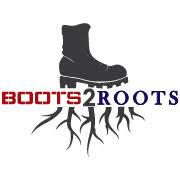
26 Professional Logging Contractors of Maine LoggersServingLoggersSince1995
active duty military members up to a year before they begin their transition for immediate success in Maine, while providing a pipeline of new workforce talent to Maine employers.
The PLC has been granted access to post jobs from our members on the Boots2Roots portal. This will put your job openings in front of veterans accessing the site.As most of you are aware, many veterans have skills or experience applicable to the logging industry, and a proven work ethic. This is a great opportunity!

Send your job openings to PLC Office Coordinator
Vanessa Tillson at office@maineloggers.com and she will get them posted for you.

If you have any questions, please feel free to contact the office at 207-688-8195.

27 The Logger’s Voice ▪ Spring 2023
Trucking Industry News...


Reminder to Substance Abuse Professionals (SAPs): Ensuring a Return to Duty Process Unique to Each Individual Employee…
U.S. Department of Transportation bulletin
It has come to the attention of the U.S. Department of Transportation (DOT) that some Substance Abuse Professionals (SAP) are providing Return-to-Duty (RTD) timelines to employees who have violated the DOT drug and/or alcohol regulations before conducting the required initial evaluation and SAP assessment of the employee. Doing so directly contravenes 49 CFR Part 40 and potentially compromises public safety. It also undermines the SAP’s role in evaluating each individual employee and directing that employee to get the specific help the employee needs.

As a reminder, your role as a SAP is important to the DOT return-to-duty process. You are not an advocate for the employer or the employee. Your function as a SAP is to protect the public interest in safety by evaluating the employee and recommending appropriate education and/or treatment, follow-up tests, and aftercare.
As a SAP, the decisions you make and the actions you take regarding an employee who has violated the DOT drug and/or alcohol regulations have the potential to impact transportation safety. The ultimate goals of the SAP process are to address the employee’s needs for rehabilitation for the sake of the employee, and to give the employee the tools the employee needs to return to the performance of safetysensitive duties.
Consistent with sound clinical and established SAP standards of care in clinical practice, and utilizing reliable alcohol and drug abuse assessment tools, you must conduct an assessment and evaluation, either in-person or virtually
(per applicable guidance), of the employee. In our longstanding SAP Guidelines, we have told SAPs, “The evaluation should be comprised of a review of the employee’s psychosocial history, an in-depth review of the employee’s drug and alcohol use history (with information regarding onset, duration, frequency, and amount of use; substance(s) of use and choice; emotional and physical characteristics of use; and associated health, work, family, personal, and interpersonal problems); and an evaluation of the employee’s current mental status.”
We want to strongly remind SAPs of the following 49 CFR Part 40 regulatory requirements:
Provide a comprehensive assessment and clinical evaluation unique to the employee. [See 40.293(a)]
Recommend a course of education and/or treatment unique to the needs of the employee whom you have assessed and evaluated. You must make a recommendation for education and/or treatment that will, to the greatest extent possible, protect public safety in the event that the employee returns to the performance of safety-sensitive functions. [See 40.293(b) and 40.293(b)(2)]
In determining what your recommendation will be, SAPs must not take into consideration any of the following: Employee claims that the testing process was unjust or inaccurate. [See 40.293(f)(1)]
Employee attempts to mitigate the seriousness of the violation (e.g., hemp oil, “medical marijuana” use, “contact positives”, poppy seed ingestion, job stress). [See 40.293(f)(2)]
Personal opinions about the justification or rationale for the drug and alcohol testing. [See 40.293(f) (3)]
Again, SAPs should not provide employees with estimated RTD timelines because each employee’s situation is unique. ~
28 Professional Logging Contractors of Maine LoggersServingLoggersSince1995
Trucking
Trucking
Motor carriers and drivers using ONE PLUS ELDs (n/k/a 1 PL Logs) have 60 days to replace the revoked devices with compliant ELDs…
On February 8, 2023, FMCSA removed the following device from the list of registered ELDs due to the company’s failure to meet the minimum requirements established in 49 CFR part 395, subpart B, appendix A.


ELD Name: ONE PLUS ELD (n/k/a 1 PL Logs)
ELD Model number: ORS
ELD Identifier: ORS160
ELD Provider: ONE PLUS ELD (n/k/a 1 PL LOGS)
ELD Registration ID: 8J3V This device now appears on FMCSA’s Revoked Devices list.
Motor carriers and drivers who use the device listed above must take the following actions: Discontinue using the revoked device(s) and revert to paper logs or logging software to record required hours of service data.


Replace the revoked device(s) with compliant ELD(s) from the Registered Devices list before April 10, 2023.

29 The Logger’s Voice ▪ Spring 2023
HOULTON Bangor St. 207-532-2211 HOULTON North Rd. 207-521-2402 BILL HIGGINS 207-538-6613 PRESQUE ISLE 207-764-1800 CARIBOU 207-492-1500 LINCOLN 207-794-3310

30 Professional Logging Contractors of Maine LoggersServingLoggersSince1995 Safety

31 The Logger’s Voice ▪ Spring 2023 Safety
SafetyCulture
ByDonaldBurr PLCSafety&TrainingCoordinator safety@maineloggers.com

Let’s talk about safety culture. No owner or foreman out there wants someone on their job to get hurt. I think it comes down to the culture. I am starting at the baseline that fewer accidents save money, reduce lost time, reduce pain, are good for production, and good for morale. The question is, how can we promote employees taking their personal safety seriously? When researching this topic, I came across a couple of statistics that I find interesting. Risky behaviors cause 90% of injuries, and 51.2% of employees believe their manager expects them to take unnecessary risks. If we believe these statistics, we have plenty of room to reduce injuries by changing our behavior and how we view risky behavior.
I am proposing today that we make our jobs safer by intentionally making safety part of our thinking. Make safety as common a topic as what mills the wood is going to and how the trails run to the yard. Look for ways to weave your concept of how to work safely into the workplace. Think of it like coaching a sports team. Your employees need to know:
1. The rules of the game. What are the expectations for safety procedures and your approach to working safely, clarifying what is required and expected behavior. If the employees don’t know the rules, they will make them up, and from the above statistic, we see they have the mistaken impression that you want them to take unacceptable risks, exposing themselves unnecessarily to danger.
2. How they fit in the next play. Whose job is it to decide what is safe, and who can tell another employee how to make the job safe? Who is calling the play? How many times have you heard after an accident that someone on the job knew what was happening was dangerous but said nothing because it was not “their” job?
3. What calls can an employee make on their own? What are the guidelines for decision-making, and when is an employee expected to seek assistance in the decision on how to approach a problem? Have these words ever come out of your mouth, “all you had to do is ask?”
4. How do you define a win or a loss? Problems often take longer than anyone wants to fix. Is taking a
shortcut and exposing an employee to danger worth the time you save? Categorically no! Safety is an investment. Time is money. Wood fiber pounds are money. Injuries are money. Do your employees understand this balance? Bob is worth more than the buncher.
5. PPE is an expectation for all employees equally and should always be worn when working outside of a piece of equipment or a pickup. Consider yourself a coach of safety. Like a coach, you may be on the sidelines, but you are vocal and present, and the employees know you are there to give direction and encouragement. Focus on the positive, train yourself to look for ways to praise good decisions. Nurture your employees to think about safety when approaching all aspects of work. Encourage reporting near-misses so others can learn from the “almost” injury. Foster humbleness when making mistakes, and this will free up your employees to talk about how to do it better and safer next time.
If we can cultivate these attitudes on our jobs, this will lead to everyone taking their personal safety and the safety of others seriously.
Good logging is about producing pounds of wood fiber, environmental stewardship, and working safelythese are not separate concerns.

32 Professional Logging Contractors of Maine LoggersServingLoggersSince1995 Safety
Good logging is about producing pounds of wood fiber, environmental stewardship, and working safely - these are not separate concerns.
Ted Clark, CLCS, Loss Control Consultant, Acadia Insurance

Using Safety Training to Jump Start your Safety Culture
A few weeks ago, I was having a plumbing issue at my house so like anyone else living in 2023, I logged on to YouTube in search of instructions. I proceeded to spend the next 3 hours searching through a vast array of videos trying to figure out which one of them addressed my exact problem through a reputable source and explained it in such a way that my non-plumber brain could figure out how to perform the job. Once I discovered the right video and watched it, taking diligent notes of the materials I would need, I got to the end of the video only to figure out that I didn’t have the correct tool to perform the job leaving me in the same place I started, a problem that couldn’t be fixed without the proper tool…. Infuriating…. I know…… we have all been there.
Through the process of figuring out this plumbing job, I realized that it reminds me a lot of the Spring Safety Trainings. We identify a problem that needs to be addressed, be it employee health, fires on machines, falls, or a leaky pipe. Upon identifying the problem, we take the time to figure out how to address it and then, through reputable and knowledgeable trainers, we teach the employees about how to correct the problem. Often times though, after going through the instruction, the employees find themselves without the tools to fix the problem, rendering the training useless just like my YouTube videos. As a company, you make a huge investment in safety by sending your employees to the spring training but how do you ensure that the employees have the support and tools to implement their new knowledge? There are a lot of ways to implement the new safety policies and practices learned during the training but the most effective way is to integrate them into your company’s culture so they become second nature. The truth is, changing your culture is not easy and just like you can’t eat an elephant in one bite, you can’t change culture overnight, it takes time, consistency and baby steps.
My recommendation is that you use the safety trainings as a stepping off point for developing your safety culture. While the information is still fresh, sit down with your crews and evaluate the information you learned and compare it to your company’s culture, looking for two or three high exposure opportunities to reduce risk. These should be areas where, if not addressed, may lead to serious injury or even death. Once you identify these areas for improvement, use the information from the safety trainings to begin to address them. With time and consistency, you will notice these exposures start to be well controlled and you will be able to identify new areas that need to be addressed.

There is a human tendency to want to flip a switch and have things change overnight. The trouble with this approach is, while well intentioned, it often fails because its simply too much, too soon. When developing a highquality safety program, it is critical to not give in to this desire but instead, make slow changes, addressing major exposures which allows safety to become second nature and, “just the way we do business”, making it much more likely to stick.
Acadia is pleased to share this material for the benefit of its customers. Please note, however, that nothing herein should be construed as either legal advice or the provision of professional consulting services. This material is for informational purposes only, and while reasonable care has been utilized in compiling this information, no warranty or representation is made as to accuracy or completeness. Recipients of this material must utilize their own individual professional judgment in implementing sound risk management practices and procedures.
33
Safety The Logger’s Voice ▪ Spring 2023
Next PLC Safety Committee Meeting












34 Professional Logging Contractors of Maine LoggersServingLoggersSince1995 Safety
Oct. 2023 Location TBD
Arthritis
By Brie Weisman, OTR/L with Maine LogAbility
It’s early morning. A cold, damp feel is in the air. You’re dressed for the elements, but a day of work awaits, maybe you’re operating the Skidder, or loading the logging truck, or are fortunate to be in the heated cab of the Forwarder. You already notice the stiffness in your hands, the bit of redness and swelling. You have difficulty making a fist.
These are most likely symptoms of arthritis. The CDC says that about one in four adults and fully half of all people over 65 suffer from arthritis. According to the logging industry of Maine, the average age for loggers is 50.
Like machinery, our joints need lubrication and cushioning. We often begin to lose this as we age, and working our own unprotected joints can be just as problematic as operating ungreased machinery. Arthritis causes pain, inflammation, and limited range of motion. Osteoarthritis is the most common form typically affecting hands, hips, knees, feet and lower back and is the most treatable.
Risk factors for arthritis include:
∙ Family history
∙ Age
∙ Previous joint injury
∙ Obesity
There is no cure for arthritis; fortunately, there are natural, non-invasive methods that may greatly reduce symptoms:

∙ Relaxation therapies–mindful breathing, yoga, meditation, listening to music, guided imagery, simply getting out in nature–are all proven techniques for reducing pain.
∙ Acupuncture. This 3000 year old practice has found validation for arthritis treatment from so many studies that insurance companies cover it.
∙ Heat and cold. Applying heating pads to aching joints, taking hot baths or showers, or immersing painful joints in warm paraffin wax, can offer temporary relief of pain. Use heating pads for no more than 20 minutes at a time. Applying ice/cold packs to sore muscles can relieve pain and inflammation after strenuous work or exercise.
∙ Massage can offer relief from pain and stiffness. Make sure your massage therapist or masseuse knows where your arthritis affects you.
∙ Cognitive behavioral therapy (CBT) has been
recognized as the most widely used psychotherapeutic treatment for adults with chronic pain. CBT employs talk therapy and behavior modification to help identify and break cycles of harmful or self-limiting thoughts and actions.
These conservative treatments are often enough for effective management of arthritis. For more severe cases, your physician may recommend medications and more invasive treatments:
∙ Therapeutic injections: cortisone shots may help temporarily relieve pain and inflammation.
∙ Fusion: A procedure that permanently fused two or more bones. This reduces pain greatly at the loss of the joint’s mobility.
∙ Joint replacement: Damaged, arthritic joints can be replaced with artificial joints, increasing joint function and movement while reducing or eliminating pain. While you are in the woods, you can make simple changes to your routine to lessen joint pain through adaptive techniques and through the use of adaptive equipment. To learn more about implementing these changes contact Maine AgrAbility program.
Traditional loggers (less mechanized operations) do have one advantage in staving off arthritis: an active lifestyle is the best way to maintain a healthy body. “Move it or lose it” applies to joint mobility and comfort. An active job is not an excuse not to exercise. In fact, increased exercise, especially core and resistive strength training would benefit loggers to reduce risk of injury and increase productivity and quality of life. Working in a cab in the woods is like being a home office worker.You're working remotely,sitting for 7-10 hours, controlling the joysticks, mouse, and keypad. However, long periods of time in Feller Bunchers, Forwarders, Cranes and Skidders, with repetitive motions, and cold or damp weather can all lead to or exacerbate arthritis. As with so many things, addressing the earliest signs of arthritis and sticking with a treatment will likely give the best results and head off greater suffering and hardship. And, as many of these treatments have other benefits beyond treating arthritis and are free or inexpensive, it is hard to argue against giving them a try.
For More Information, visit Maine LogAbility, part of the Maine AgrAbility program:
https://extension.umaine.edu/agrability/

35 Safety The Logger’s Voice ▪ Spring 2023



36 Professional Logging Contractors of Maine LoggersServingLoggersSince1995
Safety




38 Professional Logging Contractors of Maine LoggersServingLoggersSince1995 Reminder: PLC Legislative Updates are sent Saturday mornings! Watch your email for them! PLC Legislative Breakfast 2023! Thank you to everyone who made the March 2 PLC 2023 Legislative Breakfast at the Governor Hill Mansion in Augusta a success! We had a good crowd and it was a great opportunity to reach legislators with the issues Maine logging is facing. Special thanks to Alex and Molly London of PLC Member WW London Woodlot Management Co. in Milo and PLC President Will Cole of Trees Ltd. in Sidney for speaking to the group so well about the industry!
Recruiting is underway for Mechanized Logging Operations and Forest Trucking Program in 2023
The Professional Logging Contractors (PLC) of Maine and Northern Maine Community College (NMCC) have announced recruiting is underway for the Mechanized Logging Operations and Forest Trucking Program (MLOFT), an expanded version of their highly successful logging operations certificate program that will now include Commercial Driver’s License (CDL) training.

The program will run for 20 weeks, from June 26 to November 9. The majority of training will take place at an active timber harvest site northeast of Old Town.
The opportunity to earn a CDL-A permit and receive preparation for the state driving exam is a significant addition to the program, Dana Doran, Executive Director of the PLC, said.
“This program already has a proven track record of addressing Maine’s shortage of qualified logging operators in an efficient and affordable way,” Doran said. “The addition of forest trucking to the program will further prepare students for today’s logging industry, giving them advanced skills to haul loads and move equipment in the Maine woods. This will enable employers to have multiskilled operators who can efficiently haul timber, haul equipment, and operate the equipment needed to harvest wood in today’s forest.”
Students enrolled in the post-secondary training program will spend months harvesting timber and operating trucks using sophisticated state-of-the-art machines like those they will encounter in the logging industry. The hands -on experience students gain operating equipment is
something unavailable anywhere else in Maine and neighboring states and will prepare them for in-demand careers with logging contractors throughout the state of Maine. A report released by the University of Southern Maine in 2019 documented that up to 2,000 positions in timber harvesting and trucking will be available in the next decade.
The program includes a strong emphasis on safety as well as giving students an understanding of the variables of timber growth, tree species, and markets. With support from the Harold Alfond Center of Advancement for Maine's Workforce and the Maine Jobs and Recovery Plan, students pay no tuition or fees, and the program provides all personal protective equipment (PPE).
The program was created in 2017 by three Maine community colleges, the PLC, and industry partners. This year’s class will be the 7th since its launch, and dozens of graduates are working in Maine’s logging industry today. Approximately 95 percent of logging in Maine now relies on mechanized equipment. The industry also relies almost exclusively on heavy trucks to move wood. With the majority of logging operators and forest truckers at or near retirement age, the demand for new workers in the logging industry is high and most students in the previous certificate program have had job offers before graduating.

Anyone with an interest in the program should contact Leah Buck at Northern Maine Community College at 207-768-2768. Information may be found online at www.bit.ly/2023MLOFT

39 The Logger’s Voice ▪ Spring 2023
ToolsforProtectingWaterQuality
ByTomGilbert WaterResourcesSpecialist MaineForestService
Most BMP techniques are based on a few simple principles. Understanding these principles will help you to choose or adapt the BMPs that are the most appropriate to the situation and cost effective for your operation. Think of these principles as goals. Any single practice or combination of practices that effectively achieves one or more of these key goals can be considered an appropriate BMP. Remember the outcome is more important that the tool! If it works, it’s a good BMP.
There are 7 BMP principles or “Fundamental BMPs” detailed in the Maine Forest Service BMP manual including:

1. Define Objectives and Responsibilities
2. Pre-Harvest Planning
3. Anticipate Site Conditions
4. Control Water Flow
5. Minimize and Stabilize Exposed Soil
6. Protect the Integrity of Waterbodies
7. Handle Hazardous Materials Safely
Some principles may be more important to pay attention to than others during certain times of the year. Principle #4; Control water flow and Principle #5; Minimize and Stabilize Exposed Soil will be the focus of Maine Forest Service BMP training this spring.
A key concept is to take a systems approach to implementing BMPs. This means using different measures – such as water diversions and soil stabilization techniques (such as slash) on slopes, water crossings and other areas in combination across the entire site - not just in the most vulnerable areas, and not after problems have already

begun. In this illustration, notice the placement of multiple water bars, cross-drainage, and other diversion structures across the harvest site and how they work together to manage water in small amounts: As snow begins to melt and rain becomes more frequent, it’s particularly important to consider BMP principles during harvest planning and closeout. To view the Maine Forest Service BMP manual please visit the MFS website at: https://www.maine.gov/dacf/mfs/policy_management/ water_resources/bmps.html. Copies of the manual are also available at the workshops or from your MFS District Forester.

40 Professional Logging Contractors of Maine LoggersServingLoggersSince1995









41 The Logger’s Voice ▪


Fifteen logging firms in three states achieve
The Trust to Conserve Northeast Forestlands (TCNEF) announced in January that 15 logging firms in Maine, New York, and Vermont have achieved Master Logger certification after meeting the rigorous standards for professionalism and responsible timber harvesting required by the Master Logger Certification Program®

The Maine firms are A & A Brochu, Inc. of DoverFoxcroft; Babineau Logging Inc. of West Enfield; Corey Harper Logging, Inc. of Mattamiscontis; D & T Logging, Inc. of West Enfield; Hinds Selective Wood Harvesting of Wayne; J. Guimond Logging, Inc. of Fort Kent Mills; JG Logging of Fort Kent; North Shore Logging, Inc. of Allagash; RJ Gilbert of Brighton; SYL-VER Logging of Fort Kent Mills; and T Condon Timber Harvesting of Ashland.
The New York firms are Bill Camp Logging of Fort Ann; Day's Timber Harvesting of Averill Park; and Sweeney's Tree and Land Management, LLC of Petersburg.
The Vermont firm is Mike Hammer and Sons, LLC of Whitingham.



The 15 firms were officially certified on Jan. 5 and have been notified by TCNEF. With the addition of these firms there are currently 136 Master Logger companies in the Northeast.
“This is a great achievement for these contractors and a testament to their hard work and professionalism,” Ted Wright, Executive Director of TCNEF, said. “Master Loggers are critical to the future forest economy, and it is companies like these that are setting the standard for the industry as it adapts to increasing demand for responsible forest stewardship and certified wood fiber.”
Congratulations new Master Loggers!
*The Master Logger Certification Program® name and logo were trademarked in 2020 and belong exclusively to the Trust to Conserve Northeast Forestlands.
Master Logger Loan benefit in Maine

Are you a Master Logger in Maine who is buying new equipment? Take advantage of the Direct Link Loan Program and get an interest rate reduction of up to 2% on qualifying equipment. Details of the program and how you can take advantage of it are below:
1. A Master Logger signs an Agreement with the Maine Forest Service (MFS), the bank submits Agreement to MFS, and it is approved by the MFS for the purchase of a new or new to them piece of qualifying equipment. (Cut to Length Harvesters and Forwarders, Tracked Feller Bunchers, Stroke Delimbers, Mulching Machines, Road Graders; also includes retrofitting of existing equipment like Flotation tires, Bogey wheels, harvester and processor heads; and Miscellaneous purchases like Metal and Wooden Bridges, Bottomless arches, and sediment and erosion control products) Purchases are considered on a case by case basis, with eligibility based on whether the equipment facilitates the implementation of Best Management Practices.
*Equipment that is not eligible: Grapple skidders, PullThru Delimbers, Tree-to-Tree Feller Bunchers.
2. The Master Logger gets a loan from a participating
bank. (See list below) Example: Loan is for $500,000 at current bank interest rate (ex. 7.00%). Contractor can have multiple loans but can’t exceed the $800,000 aggregate limit allowed by the program.
3. The Master Logger is given an interest rate subsidy (reduction) of 1.50% (up to 2%) – the same amount as the *CD rate for as long as they continue to qualify for the program. Example: 7.00% loan interest rate less 1.50% rate subsidy = 5.50 effective rate.
The following banks participate in the direct link loan program.
* Katahdin Trust Company - David Cambridge
* Farm Credit East- Shannon Webber
* Machias Savings Bank- Dean Clark
*Note: Maine Municipal Bond Bank buys a $500,000 CD for up to five years from bank for up to 2.00% less than the bank’s going CD rate matching the term of the loan. Ex. 1.50 % - (up to 2%)
For more information, visit www.maine.gov and search for the Direct Link Loan Program.
43 The Logger’s Voice ▪ Spring 2023
As We See It January 2023
By Scott Dane
In my travels over the past 18 months, I have met with loggers in 30 states to hear and listen to their issues, opinions, and challenges. For the most part, the challenges are all common, regardless of the region – profitability, workforce, and markets. But recently, I was approached by some younger loggers that expressed a concern that the American Loggers Council was not hearing the “next generation.”
These guys aren’t looking at the exit but are prepared to invest in the future of the American logging industry. So, we held an impromptu side meeting with about twelve loggers to get their insights and opinions. Aside from the universally common issues, I was surprised by one new concern that was shared amongst nearly all of them – frustration with the unwillingness of their family business to “Pass on the Reins.”
It is critical that multi-generational companies continue to be passed on from one generation to the next. After all, this has been the most successful succession plan for maintaining the logging infrastructure. At the Associated California Loggers conference, one presenter asked the group how many are second, third, fourth, and fifthgeneration companies. Many hands were raised, including a fifth-generation family logging business.
Unfortunately, due to the many challenges within the logging industry, it cannot be assumed that the next generation will continue the family business. In fact, I have heard many across the country state that they do not want their children to enter the business. So, those family businesses in which the next generation is willing to commit to the long hours, difficult environment, challenging markets, and uncertainty, are fortunate that they have the opportunity to hand over the reins and ensure that their lifetime of investment and sacrifice will be a living legacy carried on by the next generation.
However, the risk in not recognizing the readiness of younger loggers is that they will become frustrated and discontent and either take the next step on their own or leave the timber industry. In this case, the succession of a company will be too often occurring, selling off the equipment and “retiring.” Because of this, it is important for the senior member of the family to be willing to take the lead and start the conversation. Acknowledge that your son/daughter is just like you: raised in the business, proud of what they have learned,
and eager to follow in their father’s and grandfather’s footsteps. Don’t wait until you are sure they are ready. None of us are ever as ready as we would like, but we have the foundation of experience, as well as the skills and ability to handle the uncertain challenges that are inherent in the logging industry. Besides, you’ll be there to fall back on for advice if necessary.
There are two types of rein/reign. One refers to reins that guide and direct. After you have successfully navigated the route, steered your logging business on its successful course, and brought it to the point it is, the time will come to hand over the reins for someone else to continue the journey. Reins can also stop forward progress if the trip is over or the direction is unknown.

The other reign refers to exercising authority in the manner of a monarch (i.e., as a king) over a period. The reign of a good leader is vital to governance and order. However, the reigning period is fixed and will always require the coronation of a new leader to continue the orderly progress of the endeavor, your logging business.
So, as your reign ends, be willing and prepared to pass on the reins to the next leader of your company. You’ve prepared them well to continue what you have built. Allow them to build upon that foundation.
This concept applies to the American Loggers Council and state associations as well. When these young loggers approached me about not hearing their voices, I confessed that they are right because my input comes primarily from the Board of Directors. Men with considerable experience and knowledge who have built the American Loggers Council into the leading timber industry association in the country. The same can be said for the leadership of the state associations. Likewise, we need to begin developing the next generation of association leaders to ensure the ongoing growth and success of the associations. That is why the American Loggers Council will establish the Next Generation Logging Leadership program for tomorrow’s leaders in the timber industry.



“We must ensure that the young trees have what they need to grow.”
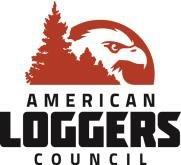
44 Professional Logging Contractors of Maine LoggersServingLoggersSince1995
We Support Maine Loggers
As We See It March 2023
 By Scott Dane
By Scott Dane
The American Loggers Council, because of who we are (you) and what we represent, is widely recognized and respected. That is why the American Loggers Council was invited to attend the Coolidge Foundation centennial celebration of the Presidency of Calvin Coolidge.


Coincidentally, when Calvin Coolidge was Vice President he lived at the Willard Hotel, the same place that the American Loggers Council will be hosting the 2023 DC Fly-In and where the Council office is. The path of the American Loggers Council and the Calvin Coolidge Presidential Foundation were destined to intersect. The conference, hosted at the Library of Congress, explored the political philosophy of economic prosperity (roaring 20s) through less government and lower tax rates.
“
Of all the forms of government, those administered by bureaus are the least satisfactory.”
-President Coolidge
These policies were proven successful in lowering unemployment, reversing severe inflation, reducing the national debt, increasing tax revenue, and generating the last government budget surplus.


“The collection of any taxes which are not absolutely required, which do not beyond reasonable doubt contribute to the public welfare, is only a species of legalized larceny.” -President Coolidge
An unmatched portfolio of economic experts (Steve Forbes) conservative political leaders (Vice President Pence, South Dakota Governor Kristi Noem, New Hampshire Governor and White House Chief of Staff John Sununu, Indiana Governor Mitch Daniels, and Arkansas Congressman French Hill), many other notable dignitaries and historian’s framed the Coolidge years as being under-credited for the decade long impact of
technological development (cars, electricity, modern plumbing, radio, movies) and economic prosperity. The parallels between America 100 years ago and today are remarkable; the end of a pandemic; high inflation; deficit spending; war (WWI) debt; political division; and civil strife. But unlike 100 years ago, America today does not have political leadership that looks at history, learns from it, uses what proved successful, and put the greater good first.
It was said by Winston Churchill that those that fail to learn from history are doomed to repeat it. History may be a source of learning that can allow those that “learn from history” to benefit from the successes demonstrated by prior events and responses. Oh, for our elected officials' days of principled public service leadership. We like to imagine that over the past 100 years, we’ve evolved into a greater republic led by more enlightened leaders. But the statesmen of yesteryear are mere historical figures, scarce in today’s halls of Congress or residence of the White House. The greatness of America was built by those before us. It is our responsibility to preserve it, not dismantle it.
The very essence of President Coolidge’s common
ALC Continued Page 46
45 The Logger’s Voice ▪ Spring 2023
man values is reflective of the values shared by the men and women of the American logging and timber occupation. The philosophy of hard work and selfreliance, which they epitomize, was reflected in President Coolidge’s quote, “SelfGovernance means Self-Support.” This concept is absent in today’s teachings, which question, and cast doubt on the hard work and selfdetermination character of the men and women who work in the woods. President Coolidge’s reduction in governmental regulation, under which today has heaped such a burden upon the logger that they struggle to shoulder it and still provide for their family and business, would be welcome 100 years later.




President Coolidge served the U.S. and the American people selflessly, and when he came to the point that he felt he had done all he could for his country and countrymen as an instrument of Devine Providence “of which I am but one” he stepped aside. He knew to whom he was entrusted with honor and responsibility: “no pledge except to serve them.” Perhaps he knew that many “self-made men all too often fall prey to worshipping their maker.”
“It is a great advantage to a President, and a major source of safety to the country, for him to know that he is not a great man,” President Coolidge said upon his decision and announcement that he would not be seeking another term. However, he was widely assumed to have been elected. A new generation of civic leaders will determine the future of the United States. Fortunately, 100 of the best and brightest college students, Coolidge Senators, were in attendance and participated in this reflection on how a reluctant public servant, President Calvin Coolidge, embraced the challenges of his time with the conviction and wherewithal to make complex, albeit not always popular, decisions based on moral convictions, with the good of all over the good of few, as his compass. Perhaps one of these Coolidge Senators will embrace the Coolidge philosophy and lead the United States back to a period of prosperity, peace, and progress.
The Coolidge Presidency provided a model for prosperity. We can replicate it or suffer from the Hoover Presidency economic model.
46 Professional Logging Contractors of Maine LoggersServingLoggersSince1995
ALC Continued from page 45
PLC Raises Record $262,403 for Log A Load in 2022!


The Professional Logging Contractors (PLC) of Maine raised a record $262,403 for Children’s Miracle Network Hospitals in Maine in 2022 through its annual Log A Load for Maine Kids fundraising efforts.

The total shattered the previous record set in 2021 of $205,000, with the PLC’s two Log A Load golf tournaments and the Log A Load live auction at the PLC’s annual membership meeting each hitting new highs in 2022.
“It is incredibly inspiring that despite the many challenges facing Maine’s logging industry, PLC’s Members, Supporting Members, friends, and families have rallied to once again raise a record amount for Children’s Miracle Network hospitals,” Dana Doran, Executive Director of the PLC, said. “No matter what obstacles they encounter in their own businesses and lives, they always reach deep for the kids and their families.”
In January, Doran presented a check for the funds to representatives from Northern Light/Eastern Maine Medical Center in Bangor and The Barbara Bush Children’s Hospital at Maine Medical Center in Portland. The check was presented at the PLC’s office in Augusta.
Those accepting the check on behalf of the hospitals were Kelly Pearson, Director of the Children’s Miracle Network Hospital program and Corporate Engagement at Northern Light Health, and Kate Richardson, Children’s Miracle Network Senior Philanthropy Manager for Barbara Bush Children’s Hospital (BBCH).
“The logging community continues to amaze us. We are touched by their generosity and compassion. The dollars raised make a real difference in the care our doctors and nurses provide
to local kids. Northern Light Eastern Maine Medical Center has used the funds to support programs and services, and purchase equipment like a new ambulance and an ultrasound machine, as well as comfort items like new stuffed animals. On behalf of our patients, their families, and the team that cares for them, thank you,” Pearson said.
“
It’s difficult to express the lifesaving impact that this industry is having on our local children’s hospitals. It’s evident that there is a deep-rooted commitment among members of the logging industry to support their community and help their neighbors – and that’s exactly what they’re doing by ensuring that our kids have access to the very best care, right here in Maine. I’m constantly amazed and deeply grateful for the tireless efforts and remarkable generosity of Maine’s logging community,” Richardson said.
The PLC raises the majority of Log A Load funds during an auction at its annual membership meeting in the spring and at golf tournaments in Lovell and Lincoln in August and September. Some additional funds are raised through the sale of items including holiday ornaments and through end of year donations.
The efforts have now raised more than $1.925 million since 1995. The 2022 Annual Meeting Log a Load for Maine Kids Auction raised $144,399 and PLC is looking forward to our next auction May 5 in Bar Harbor! See you all there!
47 Spring 2023
Congressional Delegation Updates

Growing the Workforce for Maine’s Forest Products Industry
Maine’s dedicated workforce is one of our State’s greatest assets in economic development. Time and again, business leaders cite our hardworking men and women as a primary reason for investing here, with the ongoing expansion of Louisiana Pacific’s SmartSide production line at LP Houlton a recent example.
As workforce shortages continue to affect industries statewide and as the nature of work becomes more technical and demands advanced skills, it is essential that our job training programs keep pace. Small business owners have told me that one of the biggest challenges they face is finding qualified and trained workers to fill vacant positions. In such fields as logging, seafood, manufacturing, agriculture, and wind energy, job training creates economic opportunities by aligning employees’ skills with employers’ needs, preparing individuals for a successful future.
Two bipartisan bills I have introduced will help bridge this divide. The American Apprenticeship Act would provide states with tuition assistance funding to support apprenticeship and pre-apprenticeship programs. This assistance would help align employees’ skills with employers’ needs and create a pipeline of skilled workers.

There is no state like Maine. We have a shared history that is woven throughout our communities, and proud traditions that are passed down from generation to generation. From potato and dairy farming to lobstering and logging, our heritage industries have long epitomized the Maine way of life.
For centuries, the logging industry has been foundational for our state and rural areas – creating good jobs, supporting working families, and providing essential economic activity. As Maine moves into the 21st Century, it’s imperative we continue our support of the logging industry and help a new generation access the fulfilling, good-paying jobs.
We need to encourage young Mainers to explore careers in logging and provide them with opportunities to join your field in a safe, managed way. That’s why Congressman Golden and I were proud to introduce the Future Logging Careers Act this month, with the rest of the Maine Congressional Delegation’s support. The bipartisan bill would give Maine youth the option to jumpstart their career by logging with their parents or grandparents while in high school.
The second bill is called the Jumpstarting Our Businesses by Supporting Students (JOBS) Act. This legislation would allow students in Maine and across the country to use federal Pell Grants to afford high-quality, shorter-term vocational training programs. By expanding Pell Grant eligibility, the JOBS Act would help close skill gaps, address workforce shortages, and provide workers with the specialized training and credentials they need for careers in high-demand fields. As of now, low-income and working students can only use Pell Grants for two-year and four-year colleges or universities.
In addition to comprehensive legislation, I continue to champion tailored job-training programs for specific industries. For example, in the Department of Labor funding bill for Fiscal Year 2022, I secured $1 million for the Northern Maine Community College Mechanized Logging Operations program, which has placed graduates into logging careers by providing training with the latest technology to meet the industry’s needs.
Apprenticeship and other job training programs are proven, successful tools that help young people prepare for rewarding careers. I have visited a number of impressive workforce training programs across Maine that open the doors of opportunity to students in a wide range of fields, from forestry and welding to health care and HVAC. By helping more students in our state access this career pathway, the American Apprenticeship Act and the JOBS Act would assist the next generation with obtaining good-paying jobs and make it easier for businesses to find qualified workers.
It means your kids could get invaluable hands-on experience to see if they want to follow in your footsteps –and if they decide they do, they already have the training to get right to work. It’s a commonsense effort to get more people into the industry and provide good job opportunities. This will be an important step to protect Maine’s logging future, but it’s only one piece of the puzzle. As you know well, the logging industry can only be as successful as our forests. If we want to give our children and grandchildren the option to continue logging, we need to ensure that our forests are healthy enough to continue producing world-class products.
This starts with data; it’s critical that we get a better understanding of how a changing climate will impact Maine forests and the industry. Earlier this month, Senator Roger Wicker from Mississippi – another proud logging state – and I introduced a bill to establish an industry-led “Future of Forests” panel that can produce comprehensive recommendations to make sure the Forest Inventory and Analysis Program at the U.S. Forest Service is addressing climate change, supporting forest health, and bolstering sustainable wood production.
These recommendations would align with the FOR/ ME Initiative and protect our forests for decades of logging and public use. There’s a lot to be done, but I’m hopeful Congress will pass both bipartisan bills to support the work you do and help secure Maine’s proud forest heritage.
48 Professional Logging Contractors of Maine LoggersServingLoggersSince1995
Sen. Susan Collins
Sen. Angus King
With the 118th Congress in full swing, my House Agriculture Committee colleagues and I are hard at work crafting a new Farm Bill.
Don’t let the name fool you. The Farm Bill, which is passed roughly every five years, is not legislation exclusively about farming it actually has 12 separate sections or “titles'' governing a wide swath of policy areas ranging from broadband and housing to food access and farm financing. There’s an entire title dedicated to Forestry. This legislation represents a huge opportunity to support Maine’s forest economy.
We’ve seen the immense benefits Farm Bill programs have on Maine’s forestry industry. The 2018 Farm Bill created the Wood Innovations Grant program to help bring innovative wood products to market. Projects range from utilizing wood residues for energy to advancing non-energy-based wood products. The last Farm Bill also authorized the Community Wood Energy Program. These projects support the construction of innovative wood product facilities and installation of community wood energy systems.
Since 2016, Maine has benefitted from 4 million in federal funding through these programs. There have been 8 Wood Innovation grants and 3 Community Wood Energy grants awarded to support projects in Maine. Projects range from biochar production to increasing
Family-owned logging businesses are the backbone of Maine’s forest economy and their ability to pass down the trade to future generations is critical to their and the industry’s survival.
As many of you know, right now current law prevents young Mainers from getting hands-on training from their parents or grandparents. Last week, I introduced bipartisan legislation to fix this problem so that future generations of loggers can train and work in the family business and help address the workforce shortage that our forest products industry is currently facing.

Our bipartisan bill called the Future Logging Careers Act, allows 16 and 17-year-olds in Maine to assist their family’s businesses with day to day operations, including operating logging machinery, under parental supervision. This legislation will allow young Mainers to
whole house pellet heating. For example, Dirigo Center Developers received a $250,000 grant for a crosslaminated timber tower and retail demonstration project that will expand markets for Maine’s forest products.
As we look to the 2023 Farm Bill, I am committed to strengthening this centuries-old industry. I understand Maine’s logging industry is facing challenges warmer winters are making harvest seasons shorter, costs are up, and logging industry jobs are declining. I was proud to recently join the rest of the Maine delegation in introducing the Future Logging Careers Act to help train the next generation of loggers.
As we continue to confront the climate crisis, companies nationwide want to offset their carbon emissions. One way for companies to reduce their environmental footprint is to participate in “carbon markets” and support carbon sequestration in our forests. Approximately 95% of Maine forest land is privately owned, but few forest owners currently participate in carbon markets due to the up-front costs and uncertainty about rules and requirements. I will be pushing Congress to break down these barriers and help make sure forest owners in Maine and across the country can benefit from these opportunities.
As Congress negotiates the next Farm Bill, I want to hear from you about how we can better support Maine’s forest economy. Email PingreeAg@mail.house.gov to share your thoughts and ideas with me and my team. You can also visit pingree.house.gov/FarmBill to learn more about my Farm Bill priorities and how this bill will impact you.
get an early start learning the family trade, just like the children of farmers and ranchers, and lay the foundation of a good living in the woods.
If you’d like more information, please shoot our logger support team an email at MELoggerSupportTeam@mail.house.gov. We should get back to you quickly.

Outside of the woods, I know that times are tough right now. Even if it is not related to your work, my team and I are here to help. Please let us know if we can help you solve problems you or your family is having with Medicare, Social Security, the VA, or other federal programs or agencies.
You can reach my staff at:
●Lewiston: (207) 241-6767
●Caribou: (207) 492-6009
●Bangor: (207) 249-7400
You can also send us an email at: golden.house.gov/contact/email-me
49 The Logger’s Voice ▪ Spring 2023
Rep. Chellie Pingree
Rep. Jared Golden




Professional Logging Contractors of Maine 108 Sewall St. P.O. Box 1036 Augusta, ME 04332









































































































































































 By Scott Dane
By Scott Dane

















